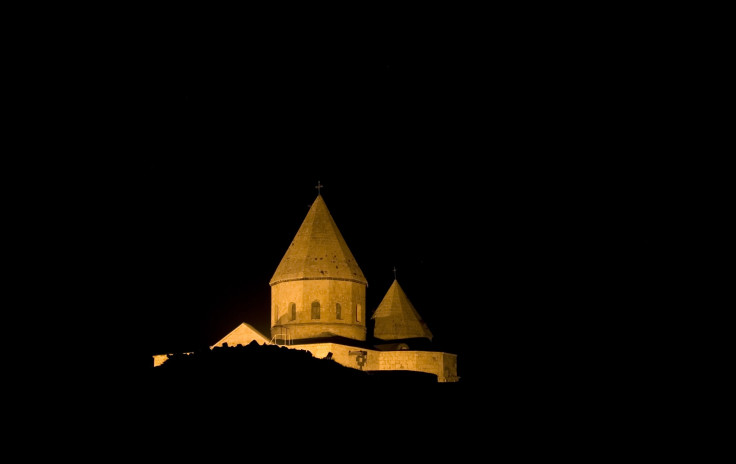The New York Times Is Selling Journalist-Led Luxury Tours To Iran For $7,000

"Journey 2,500 years back in time to discover the ancient secrets of Persia on this 13-day itinerary incorporating some of the most well preserved archaeological sites in the world," reads the copy for a $6,995 tour to Iran led by New York Times writer and former Paris correspondent Elaine Sciolino. What is not included in the itinerary, notes the Smarter Times, is Iran's record of human rights abuses and recent warnings from the State Department that advise Americans against traveling within the Middle East.
In Iran, women who appear in public without wearing a hijab/headscarf can be fined or receive face lashings; the penalty for consensual homosexuality can be flogging or even the death. The country's notorious Evin Prison holds not only the usual roster of killers and rapists but also holds journalists, dissidents and human rights activists and is known for torturing its prisoners.
The U.S. State Department website warns that Americans who travel to Iran and run into trouble will be on their own: "Some elements in Iran remain hostile to the United States. As a result, U.S. citizens may be subject to harassment or arrest while traveling or residing in Iran.... The U.S. government does not have diplomatic or consular relations with the Islamic Republic of Iran and therefore cannot provide protection or routine consular services to U.S. citizens in Iran." Also, the State Department has stated that traveling abroad, particularly within the Middle East, possesses "a heightened risk of reprisal attacks by the Islamic State of Iraq and Syria (ISIS) and its supporters," according to a CBS report. In April, the State Department issued a warning that Americans faced an increased threat of being kidnapped by terrorists, both as reprisal for the U.S. government bombing of Syria as well as an attempt to garner ransoms to continue funding ISIS' activities.
The Smarter Times' Ira Stoll also wonders if there might not be a conflict of interest for the New York Times. "How fair will Times journalism be toward those calling for tougher Iran sanctions," writes Stoll, "if the sanctions would force the newspaper to cancel its lucrative luxury tours of Iran? Why are Times journalists lending their reputations, such as they are, to promotional material that describes Iran as a kind of paradise -- colorful bazaars, 'trendy joie de vivre' -- while skipping over the reality of other parts of Iran, like, say, Evin Prison?"
© Copyright IBTimes 2025. All rights reserved.






















